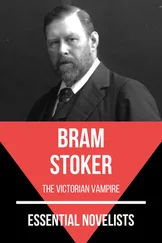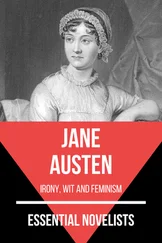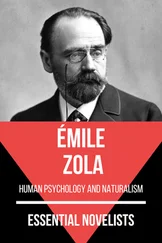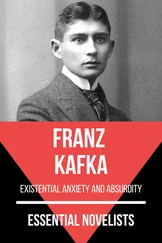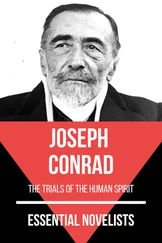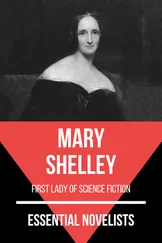The like of a tradesman in East Smithfield, whose wife was big with child of her first child, and fell in labour, having the plague upon her. He could neither get midwife to assist her or nurse to tend her, and two servants which he kept fled both from her. He ran from house to house like one distracted, but could get no help; the utmost he could get was, that a watchman, who attended at an infected house shut up, promised to send a nurse in the morning. The poor man, with his heart broke, went back, assisted his wife what he could, acted the part of the midwife, brought the child dead into the world, and his wife in about an hour died in his arms, where he held her dead body fast till the morning, when the watchman came and brought the nurse as he had promised; and coming up the stairs (for he had left the door open, or only latched), they found the man sitting with his dead wife in his arms, and so overwhelmed with grief that he died in a few hours after without any sign of the infection upon him, but merely sunk under the weight of his grief.
I have heard also of some who, on the death of their relations, have grown stupid with the insupportable sorrow; and of one, in particular, who was so absolutely overcome with the pressure upon his spirits that by degrees his head sank into his body, so between his shoulders that the crown of his head was very little seen above the bone of his shoulders; and by degrees losing both voice and sense, his face, looking forward, lay against his collarbone and could not be kept up any otherwise, unless held up by the hands of other people; and the poor man never came to himself again, but languished near a year in that condition, and died. Nor was he ever once seen to lift up his eyes or to look upon any particular object.
I cannot undertake to give any other than a summary of such passages as these, because it was not possible to come at the particulars, where sometimes the whole families where such things happened were carried off by the distemper. But there were innumerable cases of this kind which presented to the eye and the ear, even in passing along the streets, as I have hinted above. Nor is it easy to give any story of this or that family which there was not divers parallel stories to be met with of the same kind.
But as I am now talking of the time when the plague raged at the easternmost part of the town—how for a long time the people of those parts had flattered themselves that they should escape, and how they were surprised when it came upon them as it did; for, indeed, it came upon them like an armed man when it did come;—I say, this brings me back to the three poor men who wandered from Wapping, not knowing whither to go or what to do, and whom I mentioned before; one a biscuit-baker, one a sailmaker, and the other a joiner, all of Wapping, or there-abouts.
The sleepiness and security of that part, as I have observed, was such that they not only did not shift for themselves as others did, but they boasted of being safe, and of safety being with them; and many people fled out of the city, and out of the infected suburbs, to Wapping, Ratcliff, Limehouse, Poplar, and such Places, as to Places of security; and it is not at all unlikely that their doing this helped to bring the plague that way faster than it might otherwise have come. For though I am much for people flying away and emptying such a town as this upon the first appearance of a like visitation, and that all people who have any possible retreat should make use of it in time and be gone, yet I must say, when all that will fly are gone, those that are left and must stand it should stand stock-still where they are, and not shift from one end of the town or one part of the town to the other; for that is the bane and mischief of the whole, and they carry the plague from house to house in their very clothes.
Wherefore were we ordered to kill all the dogs and cats, but because as they were domestic animals, and are apt to run from house to house and from street to street, so they are capable of carrying the effluvia or infectious streams of bodies infected even in their furs and hair? And therefore it was that, in the beginning of the infection, an order was published by the Lord Mayor, and by the magistrates, according to the advice of the physicians, that all the dogs and cats should be immediately killed, and an officer was appointed for the execution.
It is incredible, if their account is to be depended upon, what a prodigious number of those creatures were destroyed. I think they talked of forty thousand dogs, and five times as many cats; few houses being without a cat, some having several, sometimes five or six in a house. All possible endeavours were used also to destroy the mice and rats, especially the latter, by laying ratsbane and other poisons for them, and a prodigious multitude of them were also destroyed.
I often reflected upon the unprovided condition that the whole body of the people were in at the first coming of this calamity upon them, and how it was for want of timely entering into measures and managements, as well public as private, that all the confusions that followed were brought upon us, and that such a prodigious number of people sank in that disaster, which, if proper steps had been taken, might, Providence concurring, have been avoided, and which, if posterity think fit, they may take a caution and warning from. But I shall come to this part again.
I come back to my three men. Their story has a moral in every part of it, and their whole conduct, and that of some whom they joined with, is a pattern for all poor men to follow, or women either, if ever such a time comes again; and if there was no other end in recording it, I think this a very just one, whether my account be exactly according to fact or no.
Two of them are said to be brothers, the one an old soldier, but now a biscuit-maker; the other a lame sailor, but now a sailmaker; the third a joiner. Says John the biscuit-maker one day to Thomas his brother, the sailmaker, 'Brother Tom, what will become of us? The plague grows hot in the city, and increases this way. What shall we do?'
'Truly,' says Thomas, 'I am at a great loss what to do, for I find if it comes down into Wapping I shall be turned out of my lodging.' And thus they began to talk of it beforehand.
John. Turned out of your lodging, Tom! If you are, I don't know who will take you in; for people are so afraid of one another now, there's no getting a lodging anywhere.
Thomas. Why, the people where I lodge are good, civil people, and have kindness enough for me too; but they say I go abroad every day to my work, and it will be dangerous; and they talk of locking themselves up and letting nobody come near them.
John. Why, they are in the right, to be sure, if they resolve to venture staying in town.
Thomas. Nay, I might even resolve to stay within doors too, for, except a suit of sails that my master has in hand, and which I am just finishing, I am like to get no more work a great while. There's no trade stirs now. Workmen and servants are turned off everywhere, so that I might be glad to be locked up too; but I do not see they will be willing to consent to that, any more than to the other.
John. Why, what will you do then, brother? And what shall I do? for I am almost as bad as you. The people where I lodge are all gone into the country but a maid, and she is to go next week, and to shut the house quite up, so that I shall be turned adrift to the wide world before you, and I am resolved to go away too, if I knew but where to go.
Thomas. We were both distracted we did not go away at first; then we might have travelled anywhere. There's no stirring now; we shall be starved if we pretend to go out of town. They won't let us have victuals, no, not for our money, nor let us come into the towns, much less into their houses.
Читать дальше

